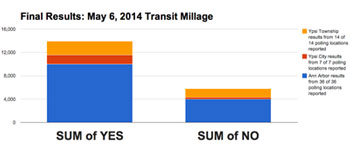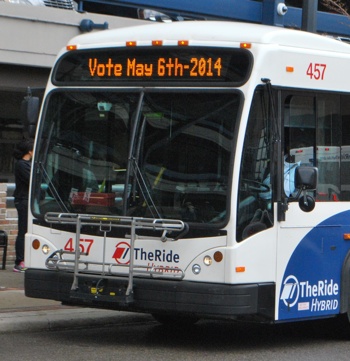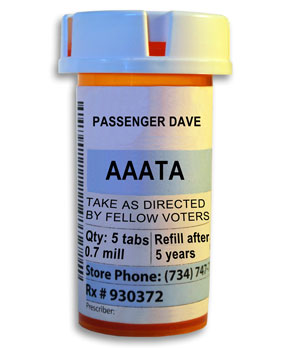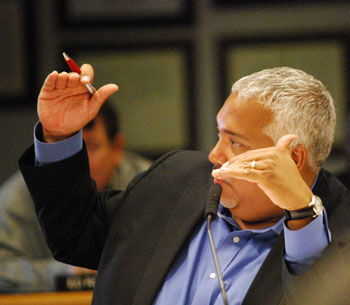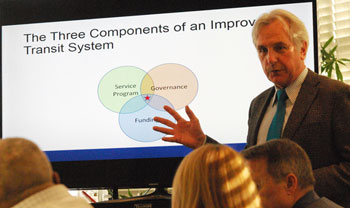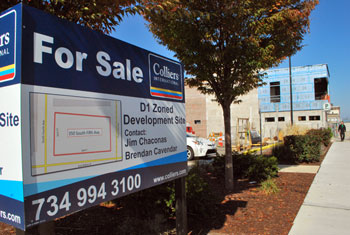Ann Arbor Transportation Authority board meetings (June 3 and June 16, 2011): The AATA board met twice in June – first at a special morning retreat held at Weber’s Inn on June 3 June 6, and again 10 days later for its regular monthly meeting.
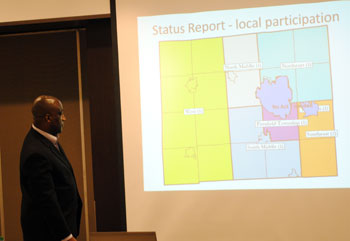
Michael Ford, CEO of the Ann Arbor Transportation Authority, presents a possible board configuration for a countywide transit authority at the board's June 3 meeting at Weber's Inn. (Photos by the writer.)
On both occasions, a significant focus was the AATA’s countywide transit master plan. At the June 16 meeting, the board approved the final version of the first two volumes of the plan, which had previously been released in draft form. The two volumes cover a vision and an implementation strategy. A third volume, on funding options, is not yet complete.
The plan is the culmination of over a year of work by AATA staff and a consulting firm to perform a technical analysis and gather public input. The goal was to create a document to guide transit planning in the county over the next 30 years. The timing of the next step – beginning to translate a neatly formatted document into reality – will depend in part on a third volume of the plan, which has not yet been finalized. The third volume will describe options for how to fund expanded transit service in the county. Countywide transit funding will ultimately be tied to the governance structure of some entity to administer transit throughout Washtenaw County.
And governance is a topic that’s ultimately reflected in the actual wording of the resolution that the board adopted at its June 16 meeting on the transit master plan. The resolution authorizes transmittal of the documents not just to the public, but also to an unincorporated board, described as an “ad hoc committee” that will work to incorporate a formal transit authority under Michigan’s Act 196 of 1986. [AATA is currently incorporated under Act 55 of 1963.]
For the last few months, CEO Michael Ford’s regular monthly reports to the AATA board about his activities have included his efforts to meet with individuals and representatives of government units throughout the county to discuss participation in the governance of a countywide transportation authority. June continued that trend. So wrapped into this combined report of the AATA board’s last two meetings is a description of the June 2 visit that Ford and board chair Jesse Bernstein made to the Washtenaw County board of commissioners.
At its June 3 retreat, the board also voted to shift some funding to the AATA staff’s work associated with the countywide transit master plan.
At its June 16 meeting, the board handled some business not specifically related to the transit master plan. The board adopted two policies that it has previously discussed: one on the rotation of auditors, and the other on a living wage for AATA vendors. They also received updates on the expansion of service to the University of Michigan’s East Ann Arbor Health Center and to the Detroit Metro airport.
Progress on those two fronts led board member David Nacht to suggest that the kind of movement and progress the AATA was demonstrating, even without additional money that could come from a countywide funding source, showed that the agency’s future plans deserved support from the community. [Full Story]
